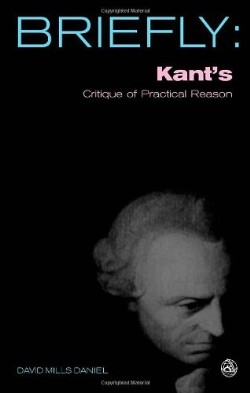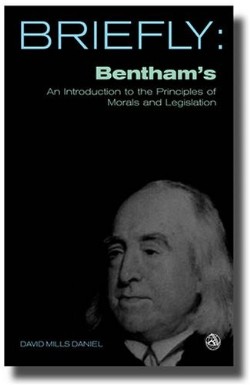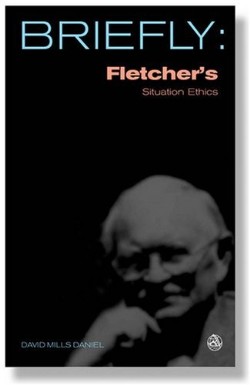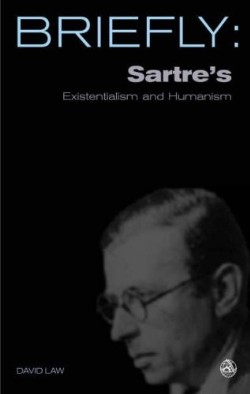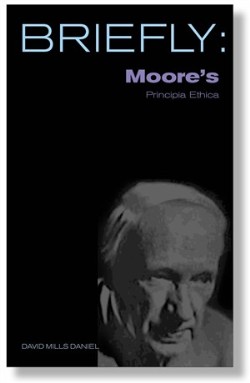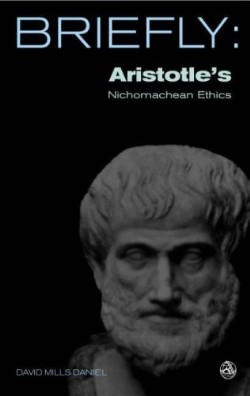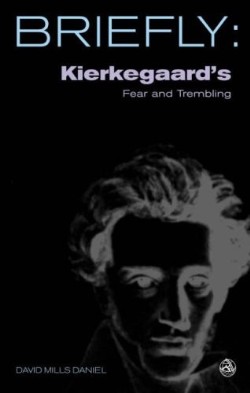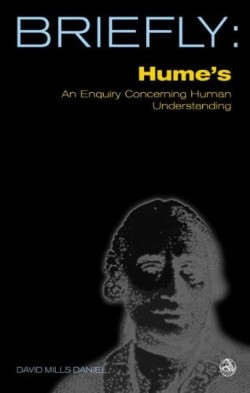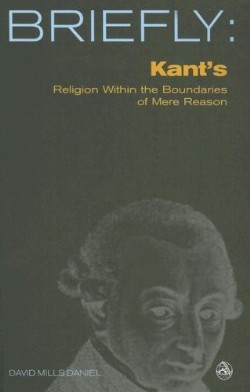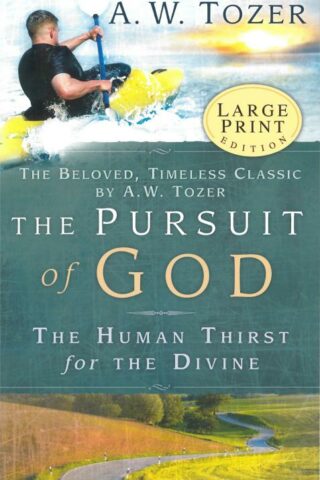David Daniels
Showing all 9 resultsSorted by latest
-
Kants Critique Of Practical Reason
$15.00Kant’s Critique of Practical Reason (1788) is one of his most important works and a key text to understanding Kant’s philosophy and it the impact it had on later developments of moral philosophy and ethics.
Add to cartin stock within 3-5 days of online purchase
-
Benthams An Introduction To The Principles Of Morals And Legislation
$15.00In the Introduction to the Principles of Morals and Legislation (1789), Bentham strove to cut a new road through the wilds of jurisprudence. Laws should be socially useful and not merely reflect the status quo; and, that while he believed that human beings inevitably pursue pleasure and avoid pain, Bentham thought it to be a sacred truth that the greatest happiness of the greatest number is the foundation of morals and legislation.
Add to cartin stock within 3-5 days of online purchase
-
Fletchers Situation Ethics
$15.00This book discusses Fletcher’s situation ethics which basically states that sometimes other moral principles can be cast aside in certain situations if love is best served. It is one of the main ethical theories studied in all introductory courses on Christian ethics.
Add to cartin stock within 3-5 days of online purchase
-
Sartres Existentialism And Humanism
$15.00The SCM Briefly series is made up of short, accessible volumes which summarize books by philosophers and theologians, books that are commonly used on theology and philosophy A level (school leaving) and Level One undergraduate courses.
Each Briefly volume includes line by line analysis and short quotes to give students a feel for the original text. In addition each book begins with a contextualizing introduction about the writer and his writings, and a glossary of terms follows the summary to help students with definitions of philosophical terms.
Add to cartin stock within 3-5 days of online purchase
-
Moores Principia Ethica
$15.00The SCM Briefly series is a series of summarized texts that are commonly used on theology and philosophy A level and Level One undergraduate courses in the UK. As students are less likely today to come to these subjects with language experience, the Briefly series, summarising the meaning of the original texts, is a painless and quick way to get to grips with what the philosophers were writing about. The language throughout is modern and approachable, but the books manage to avoid “dumbing down” by including line by line analysis and short quotes to give students a feel for the original.In addition each book begins with an introduction, which provides a context for the writer and his writings, the chapters contain summaries to ensure the student has a context for that particular piece of writing, and each book also contains a glossary of terms.
George Edward Moore’s Principia Ethica was published by Cambridge University Press in 1903 and this was the birth of the science of ethics. So groundbreaking was this book at the time, that practically overnight, ethicists became meta-ethicists and the book ever since has been recognised as the definitive starting point for 20th century ethical theory. In it Moore is concerned with applying logic to ethics, and with demonstrating that logic can give ethics a better foundation. Moore defines ethics as an inquiry into what is good, including what is good in human conduct. Moore supposed that common sense beliefs about the world were correct as they were and shows how false premises about the way in which good is to be defined can lead to false conclusions about ethical conduct. Known to influence the thinking of Russell, Wittgenstein, Ryle and Keynes to mention but a few, understanding this key work in 20th C ethics is essential, and made achievable in this Briefly guide.
Add to cartin stock within 3-5 days of online purchase
-
Aristotles Nicamachean Ethics
$15.00The SCM Briefly series is made up of short, accessible volumes which summarize books by philosophers and theologians, books that are commonly used on theology and philosophy A level (school leaving) and Level One undergraduate courses. Each Briefly volume includes line by line analysis and short quotes to give students a feel for the original text. In addition each book begins with a contextualizing introduction about the writer and his writings, and a glossary of terms follows the summary to help students with definitions of philosophical terms.
Add to cartin stock within 3-5 days of online purchase
-
Kierkegaards Fear And Trembling
$15.00The SCM Briefly series is made up of short, accessible volumes which summarize books by philosophers and theologians, that are commonly used on theology and philosophy A level (school leaving) and Level One undergraduate courses.
Each Briefly includes line by line analysis and short quotes to give students a feel for the original text. In addition each book begins with a contextualizing introduction about the writer and his writings, and a glossary of terms follows the summary to help students with definitions of philosophical terms.
Kierkegaard’s Fear and Trembling is one of Kierkegaard’s earliest works, which he wrote under the pseudonym Johannes de Silentio. Kierkegaard had been a student of theology in Copenhagen, and had come to hate the Danish Church. He produced hundreds of leaflets against the Church during his lifetime. However his writing was largely ignored, and he was not a popular or well-regarded thinker in his own time. Hegel’s writing largely dominated philosophical thought throughout Kierkegaard’s life. Hegel believed that the highest goal for a person should be to loose oneself in the Universal. One should put aside his personal goals and ambitions and be motivated exclusively by the general interests of all. Kierkegaard regarded the individual above all else and so was repelled by Hegel’s communitarian ethic. His Fear and Trembling is a sustained response to Hegel’s ideas. It uses the story of Genesis 22, 1-18, where Abraham was willing to sacrifice Isaac without question, and only faith, to put across his own ideas and philosophy. Fear and Trembling is a required text on the UK A level syllabus.
Add to cartin stock within 3-5 days of online purchase
-
Humes Enquiry Concerning Human Understanding
$15.00The SCM Briefly series is made up of short, accessible volumes which summarize books by philosophers and theologians, books that are commonly used on theology and philosophy A level (school leaving) and Level One undergraduate courses. Each Briefly volume includes line by line analysis and short quotes to give students a feel for the original text. In addition each book begins with a contextualizing introduction about the writer and his writings, and a glossary of terms follows the summary to help students with definitions of philosophical terms.
Add to cartin stock within 3-5 days of online purchase
-
Kants Religion Within The Bounds Of Mere Reason
$15.00The SCM Briefly series is a series of summarized texts that are commonly used on theology and philosophy A level and Level One undergraduate courses in the UK. As students are less likely today to come to these subjects with language experience, the Briefly series, summarising the meaning of the original texts, is a painless and quick way to get to grips with what the philosophers were writing about. The language throughout is modern and approachable, but the books manage to avoid “dumbing down” by including line by line analysis and short quotes to give students a feel for the original. In addition each book begins with an introduction, which provides a context for the writer and his writings, the chapters contain summaries to ensure the student has a context for that particular piece of writing, and each book also contains a glossary of terms.
Kant’s Religion Within The Bounds Of Reason Alone was written late in his life, following his most famous works including Critique of Pure Reason and Groundwork of Metaphysics of Morals. In it he considers the consequences of transcendental criticism for theology. Kant identifies a moral core to the Christian faith and asserts that because of that core and because the faith contains a principle for dispensing with the morally extraneous statutes and history associated with it, this faith can count as a moral, world religion. Seen by most philosophers and theologians as one of the most significant texts by this world famous philosopher, understanding is crucial for completion of any basic theology or philosophical qualification.
Add to cartin stock within 3-5 days of online purchase





